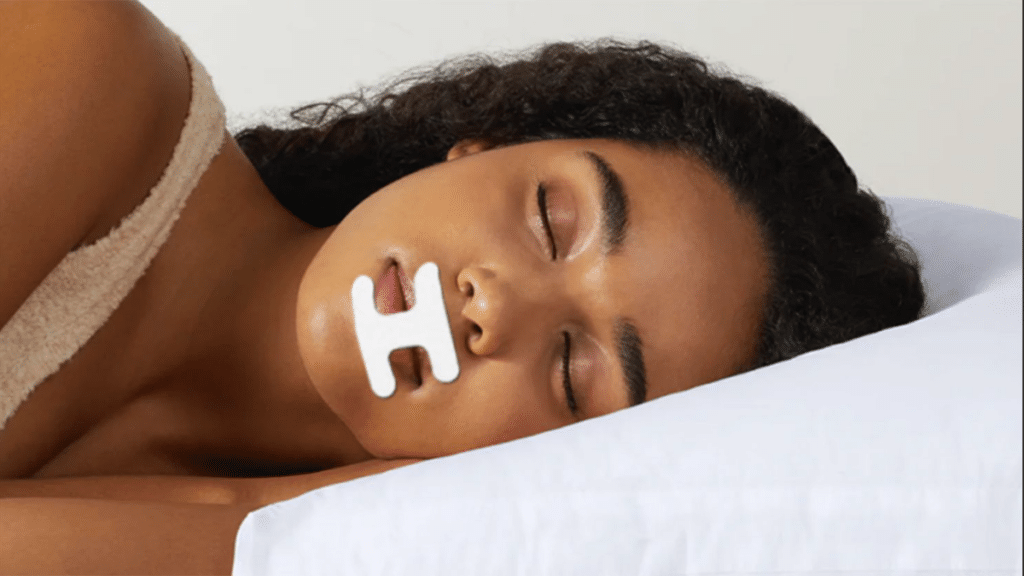Introduction
Mouth taping is becoming an increasingly popular technique for improving sleep quality. The practice involves placing a small piece of tape over the lips to keep the mouth closed while sleeping, encouraging nasal breathing. While it might sound unusual at first, many people are turning to mouth taping as a way to combat common sleep issues such as snoring and waking up with a dry mouth.
Nasal breathing is crucial for optimal health, especially during sleep. Breathing through the nose allows the body to filter and humidify air, ensuring the respiratory system functions efficiently. In contrast, mouth breathing during sleep can disrupt airflow and lead to problems like snoring, sleep apnea, and decreased oxygen levels. By taping the mouth, individuals encourage the body to adopt nasal breathing, which can significantly improve overall sleep quality.
Improved Oxygen Flow and Breathing Efficiency
One of the key benefits of mouth taping is its ability to promote nasal breathing, which leads to better oxygen flow throughout the body. Nasal breathing allows the body to regulate the amount of air taken in and facilitates deeper, more controlled breaths. This, in turn, ensures that oxygen is efficiently delivered to the body’s cells, contributing to better overall health.
Nasal breathing also promotes the production of nitric oxide, a crucial molecule that supports cardiovascular health by widening blood vessels and improving circulation. Nitric oxide helps enhance oxygen absorption and supports the immune system by reducing inflammation in the respiratory tract. By promoting nasal breathing, mouth taping encourages the body to produce more nitric oxide, leading to better oxygenation and improved sleep quality.
Reduction of Snoring and Sleep Apnea Symptoms
Mouth taping can significantly reduce snoring by encouraging nasal breathing and keeping the mouth closed during sleep. When the mouth remains open, the airways may become obstructed, leading to snoring. By taping the mouth, it helps maintain proper airflow through the nose, which can reduce the vibrations in the throat that cause snoring.
For those with mild sleep apnea, mouth taping can also offer benefits. By promoting nasal breathing, the airways are less likely to collapse, helping to improve airflow and reduce sleep interruptions. This can lead to a more restful night’s sleep and improved oxygen intake throughout the night.
Prevention of Dry Mouth and Improved Oral Health
Mouth taping helps prevent dry mouth, a common issue for those who breathe through their mouths while sleeping. Dry mouth can lead to an increased risk of oral health issues, such as gum disease, tooth decay, and bad breath. By encouraging nasal breathing, the moisture levels in the mouth are preserved, promoting better oral hygiene. As a result, individuals may notice fresher breath and improved overall dental health.
Conclusion
Mouth taping offers several benefits, including reducing snoring, improving mild sleep apnea symptoms, and preventing dry mouth. To start safely, use a gentle tape and explore other sleep improvement techniques like using nasal strips or practicing deep breathing exercises.
